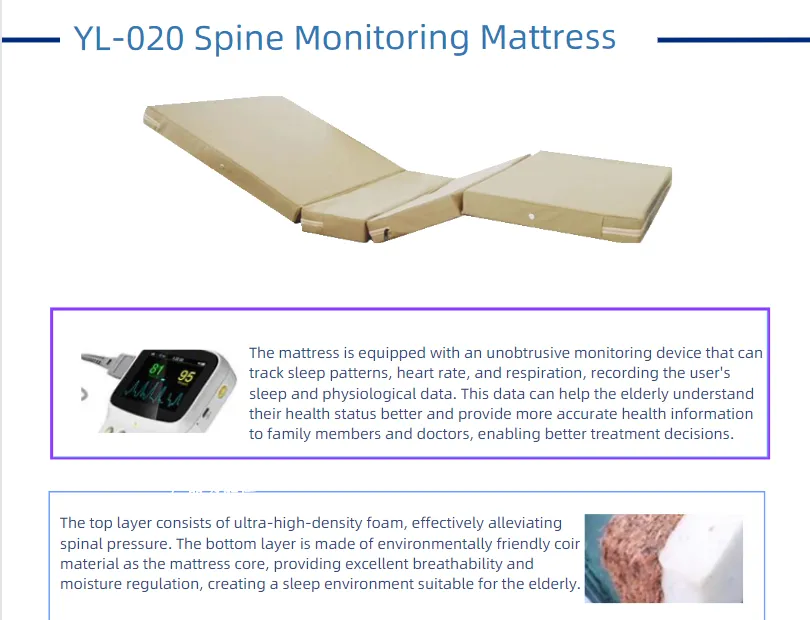ce certification anti-decubitus mattress
Understanding CE Certification in Anti-Decubitus Mattresses
Understanding CE Certification in Anti-Decubitus Mattresses
CE marking signifies that a product complies with the essential health, safety, and environmental protection requirements established by European directives. For anti-decubitus mattresses, this certification is not merely a regulatory box to check; it represents a commitment to quality and efficacy. Manufacturers must conduct extensive assessments that often involve clinical evaluations and biocompatibility tests. This robust process ensures that the mattress effectively redistributes pressure across the body, thereby reducing the risk of sores while providing comfort and support to patients.
ce certification anti-decubitus mattress

There are several types of anti-decubitus mattresses available in the market, including static and dynamic options. Static mattresses are typically foam-based, designed to disperse weight evenly, while dynamic mattresses employ air cells that alternate inflation and deflation to enhance blood circulation. Regardless of the type, achieving CE certification involves rigorous testing to confirm both performance and safety. This testing includes checking for fire safety, durability, and the absence of harmful substances, which is particularly important in healthcare settings where patient vulnerability is heightened.
Furthermore, CE certification is not static; it requires ongoing compliance. Manufacturers must consistently monitor performance and quality, adapting to feedback from healthcare professionals and patients alike. The maintenance of CE certification assures consumers that the products they choose not only adhere to the highest standards but also represent the latest advancements in technology and research.
In conclusion, CE certification serves as a crucial stamp of approval for anti-decubitus mattresses, ensuring they meet the necessary safety and efficacy standards required in healthcare environments. For caregivers and patients, choosing a CE-certified mattress can provide peace of mind, knowing that the product is designed to enhance patient care and comfort while effectively preventing pressure ulcers. As technology continues to evolve, the importance of rigorous standards like CE marking will only grow, paving the way for better patient outcomes in the healthcare sector.
-
the-truth-about-orthopedic-mattresses-for-sore-back-painNewsAug.23,2025
-
space-saving-benefits-of-a-single-mattress-cubeNewsAug.23,2025
-
eco-friendly-advantages-of-a-silicon-mattressNewsAug.23,2025
-
how-to-fix-sagging-in-a-special-mattressNewsAug.23,2025
-
how-ambulance-stretcher-mattresses-reduce-pressure-injuriesNewsAug.23,2025
-
best-cleaning-practices-for-a-hospital-mattress-doubleNewsAug.22,2025
-
Mattresses Designed for Back Pain ReliefNewsAug.08,2025

